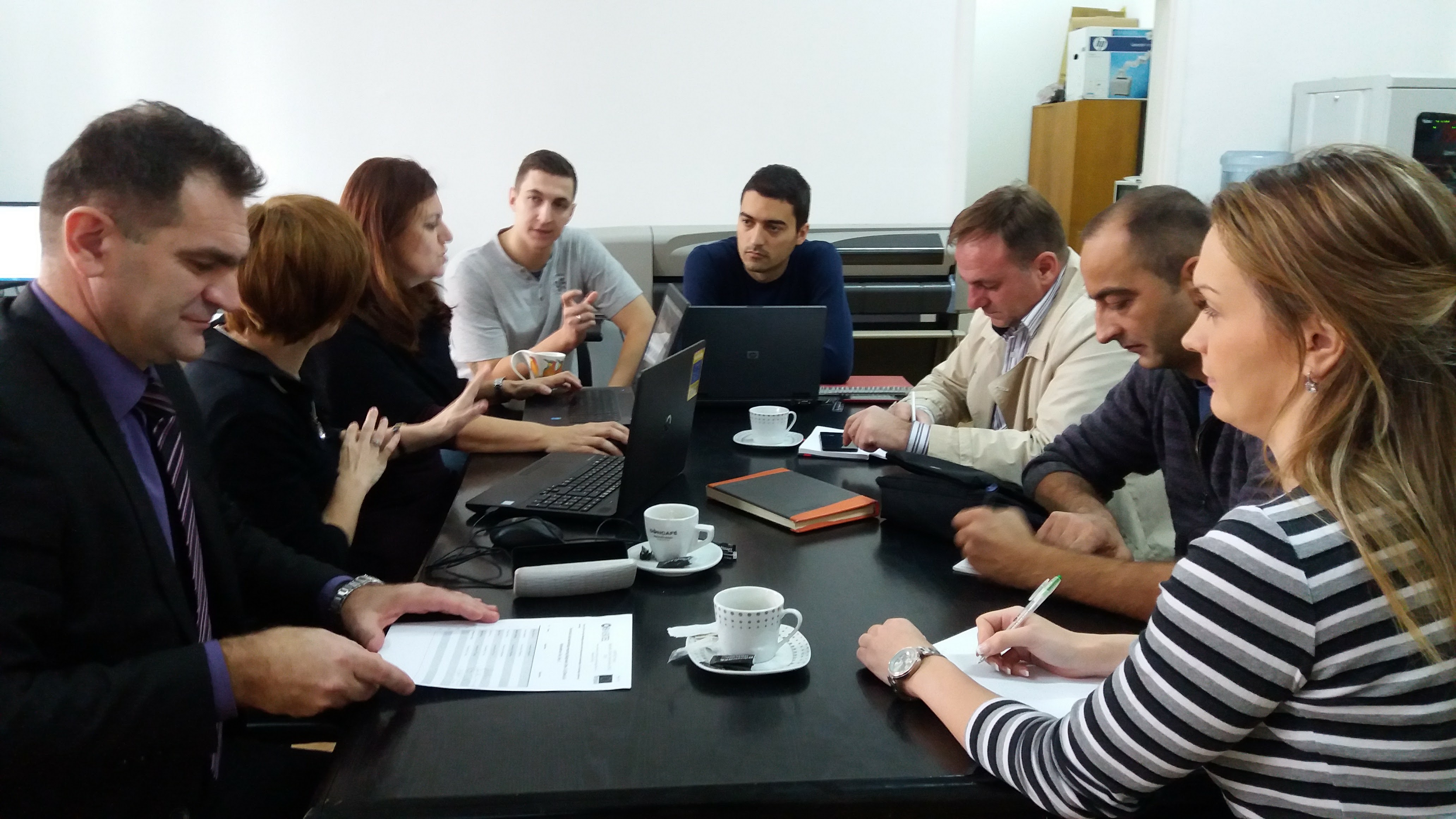Internal quality assurance with technical meeting, 23-25 of November 2016 Belgrade

After registration of the participants, the meeting started with the first session titled Computer lexicographical process for online dictionaries related to Dev 3.3. Getting to know the content of the session was moderated by Nikola Vulović from the University of Belgrade. Together, all meeting participants passed through all stages of the process for online dictionaries. Instructions were given to team members UNTZ to pay attention to the correctness of implementation of lexicographical processes. After a short break, Ranka Stanković presented guidelines to be used when creating terminological resources, and has indicated that standards must be met so that terms could be used without problems in published OER.
After the lunch break, the team members from UNTZ discussed end entered mining and environmental terminology, which is of special interest, as it is to be used in the majority of published OER materials related to mining industry. The need to respect the standards when inserting definitions was further explained, for each mining term, especially in the field of environmental engineering, in order to enable unambiguous translation.
Ranka Stanković and Dalibor Vorkapić presented TERMI application tutorial (linked with the Dev 3.4). They briefly highlighted the most important items from the tutorials. Training with the new environment Termi application followed through practical work of all team members from UNTZ. After the break, discussion of participants at the meeting started in relation to GIS terminology. During the discussion, some BESTSDI project features were discussed, on which BAEKTEL could rely in terms of sustainability. It was emphasized that the project could improve its courses in GIS by using BAEKTEL resources, but also that BAEKTEL could include new courses that will be created through BESTSDI project as OER content.
In addition to the above-mentioned terminology attention was given to computer science terminology, which appears in almost all OER courses created by the participants of partner institutions. The consortium agreed that each institution should complement the existing terminological resources in this segment. Members of the UNTZ team presented their terminological resources produce so far, followed by a discussion of possible changes and refinement.
Team members from UB presented translation tools that can be used to assist when generating terminological resources in order to realize multilingualism of OER.
After training with translation tools, further work was related to the integration of terminology with OER, which is one of the important activities within Dev3.4. All participants of the meeting practiced integration of terminology for OER they have created.
At the end, the main points of the meeting were summarized, a to-do-list was created and presented, of with clear identification of main milestones and check-points for the future.


